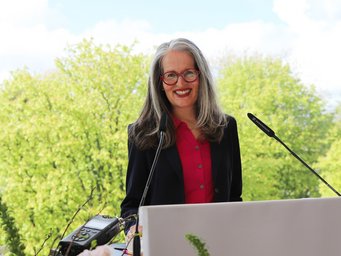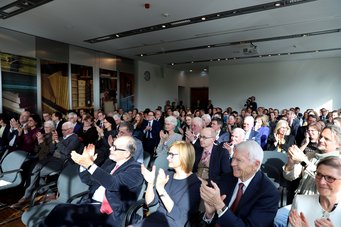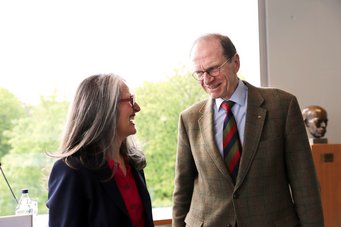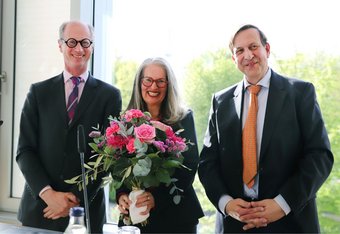Ceremonial inauguration of Anne Röthel
Anne Röthel, former holder of the Chair of Civil Law, European and Private International Law at Bucerius Law School, was appointed as Director of the Institute as of 1 January 2024. On the occasion of her induction on 18 April 2024, she presented her research agenda in her inaugural lecture.
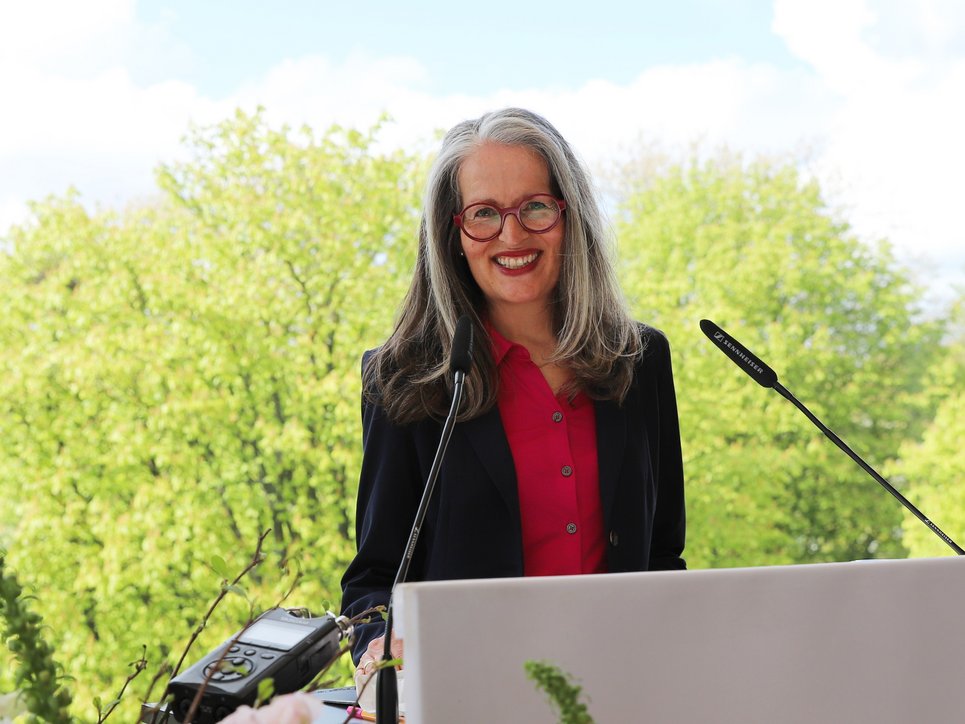
Holger Fleischer, Managing Director of the Institute, welcomed Anne Röthel to the directorate with "enthusiasm and pride". In his opening remarks, he praised the legal scholar for the numerous research projects that she successfully conducted at Bucerius Law School, such as on autonomy in law. He also applauded her consummate methodology and her ability to bring together different areas of law. The appointment of Anne Röthel as Director is a stroke of good fortune for both the Institute and the Max Planck Society, in Fleischer’s estimation.
Thereafter, Katharina Fegebank, Vice-mayor of Hamburg and Senator for Science, Research and Gender Equality, expressed her delight that Anne Röthel had remained loyal to Hamburg – as a centre of scholarship – with her decision to move to the Institute. She also emphasised the historical significance of the Institute’s first appointment of a female director in its almost 100-year history. Fegebank described Anne Röthel as an important source of inspiration and as a mentor, and she looks forward with great anticipation to the many ensuing years of academic thought reaching beyond traditional borders.

In her inaugural lecture, Anne Röthel set out the perspectives she brings to her prime area of research; the law’s treatment of families, persons, and private life. In approaching the different worlds associated with the subject matter, she observed: "As regards the family, law is understood as differentiating; as regards persons, it is seen as categorizing, and in the area of private life, law sets boundaries." Making reference to this matrix, she proceeded to outline a series of guiding motifs.
Among other aspects, she described the current international developments in family law as an advancing process of recognition, one where legal recognition is sought for more and different constellations of family life and one where the law’s borders of distinction are being extended. Conversely, she noted that a movement of de-recognition can also be observed in individual legal systems, for example in the re-criminalization of homosexual lifestyles. Röthel emphasized that any understanding of the present is based on assumptions about the past: "Without serious interdisciplinary reflection, there is a risk of falling prey to prejudices, stereotypes and clichés." Consequently, in order to gain insight into the developmental forces at work in family law, it is indispensable that scholars undertake an interdisciplinary examination of family as it has been historically defined and studied sociologically.
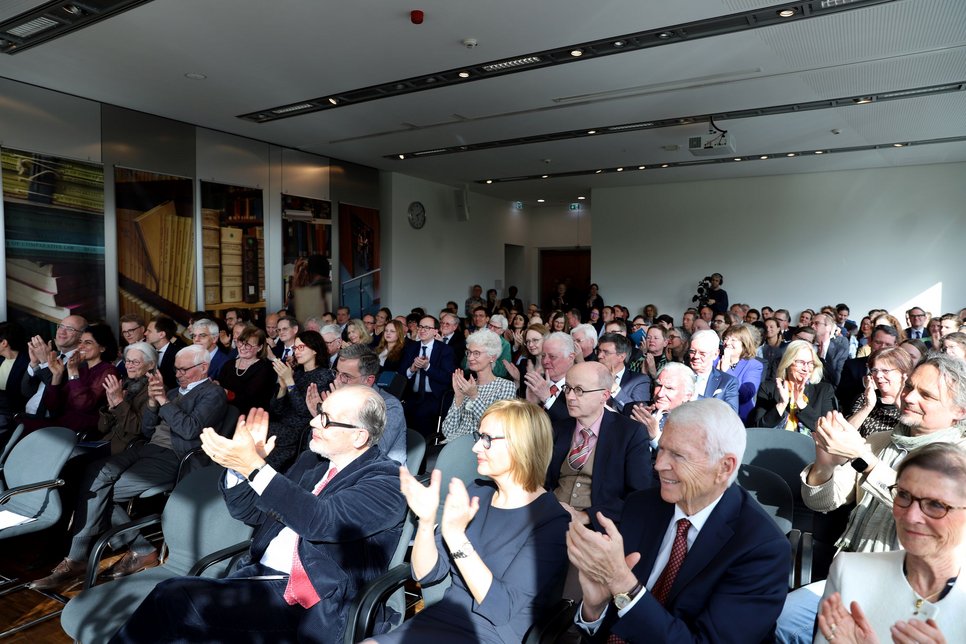
In the area of the law of the person, she explained her observation that the law is above all categorizing law, which designates people according to characteristics such as gender, age, neurotypicality or origin and then attaches legal consequences to these designations. In relation to the category of gender, Röthel sees a process of de-categorization. She presented her thesis that other categories would in the coming years also face pressure to justify themselves, and she pointed out that distinctions between children and adults or the decision to place people 'under care' due to a disability, mental illness, or dementia were also based on categorizations. As categorizing law can be criticized as embodying adultism and ableism or be challenged in light of its implicit hierarchies, arguments in favour of completely new regulatory structures can be expected.
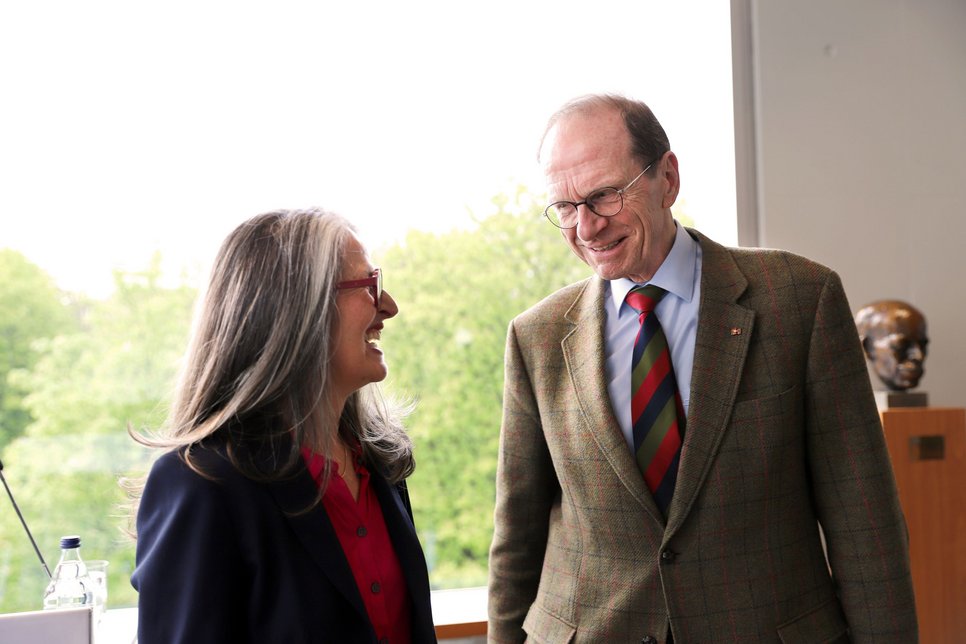
On the topic of the law of private life, Röthel stated that law reveals itself here as boundary-setting law. In this regard, German law is facing a development in which the borders between the inside and outside, between family and society, and between private and public are becoming more porous: "A large portion of those legal concepts that construed the family as a special and shielded space and which thus consolidated and legitimized intra-family power relations have lost their persuasive power." The legal scholar explained that her research is also particularly concerned with clarifying the influence of changes in the composition of populations conceived as nation states – through, for example, migration – on legal notions related to private life and on the perceived legitimacy of legally formed family structures.
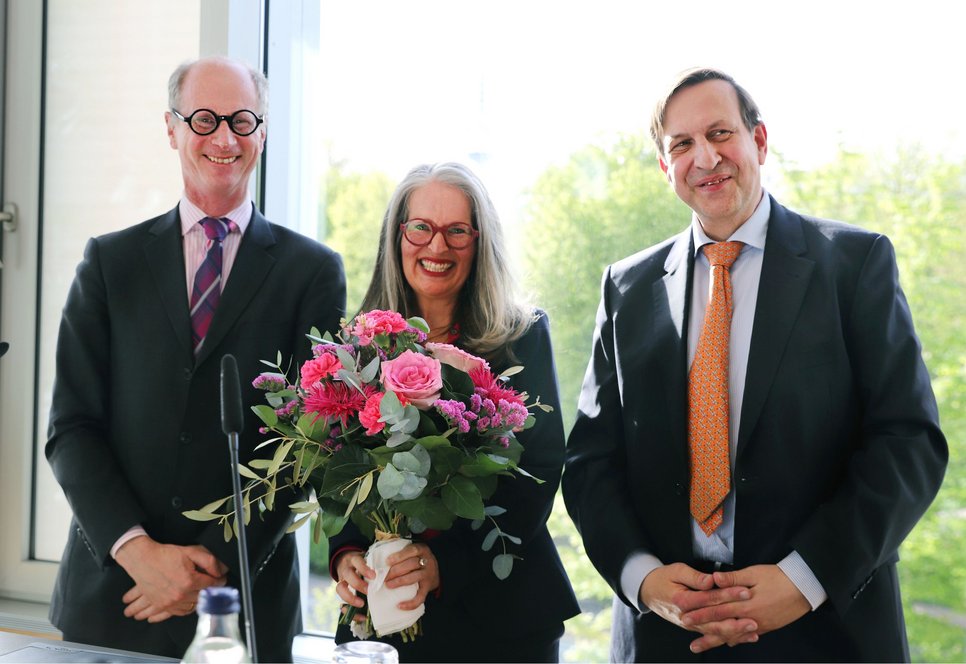
Röthel concluded with a look at comparative law, a field in which family law has long received little attention due to the role of values and moral precepts in its unique characterization. Yet as she pointed out, the situation has, for example, been quite different in comparative literature, where the very reasons for family law’s purported unsuitability for comparative private law embodied the motive for comparison. But an oblique glance at other comparative fields teaches even more: "Comparative law is not the only discipline that struggles with the relationship between method and subject matter, that addresses its Eurocentric tradition, that wonders what type of elements are amenable to comparison, that contemplates whether it is appropriate to divide a global body of material into families, that asks whether there is such a thing as a national style, how much comparative findings are trapped in constructions and implicit agendas, and whether the deeper concern should be more about uncovering universal truths or understanding historical processes of reception and transfer." As for her own research agenda, she remarked: "I value comparative law particularly for what it can reveal about our own law. And for the fact that it enables us to experience contingencies. This will be particularly valuable when it comes to conceptualizing law in a forward direction."
A video of the event can be streamed here.
Images: © Max Planck Institute for Comparative and International Private Law / Johanna Detering
